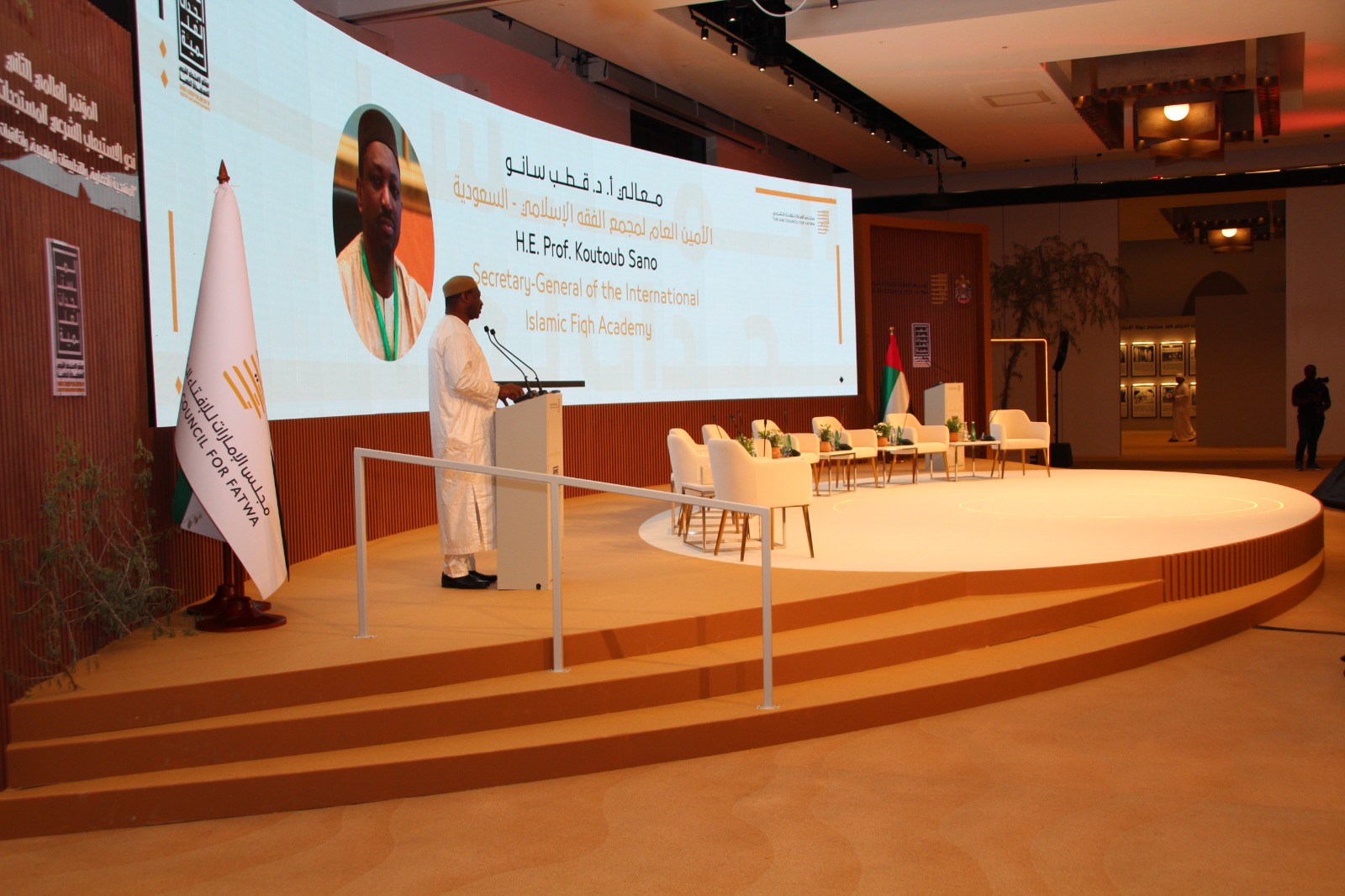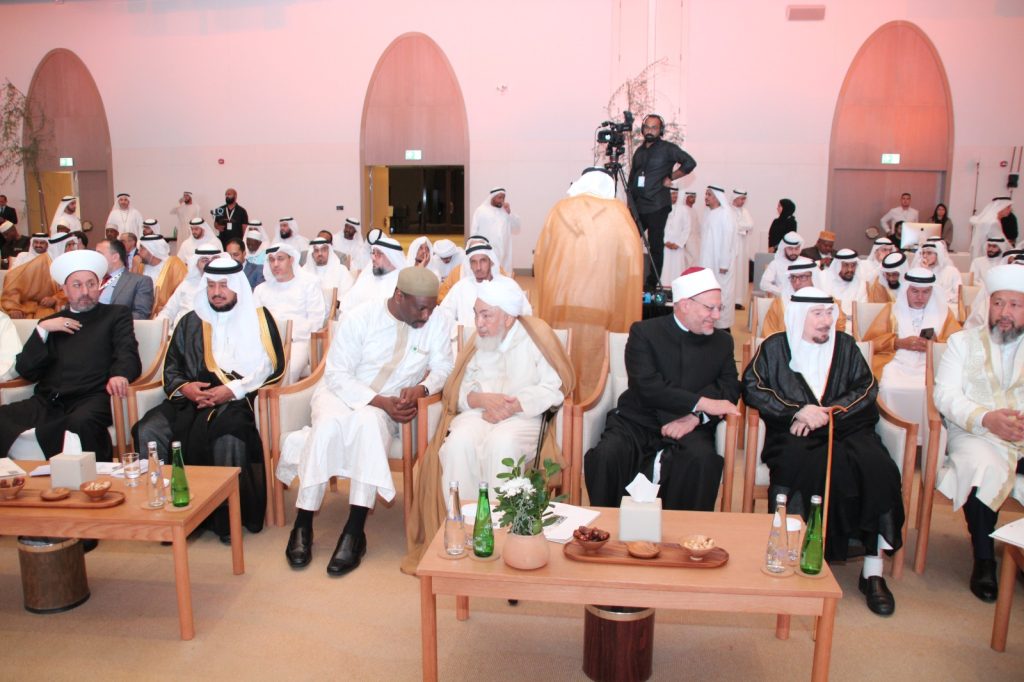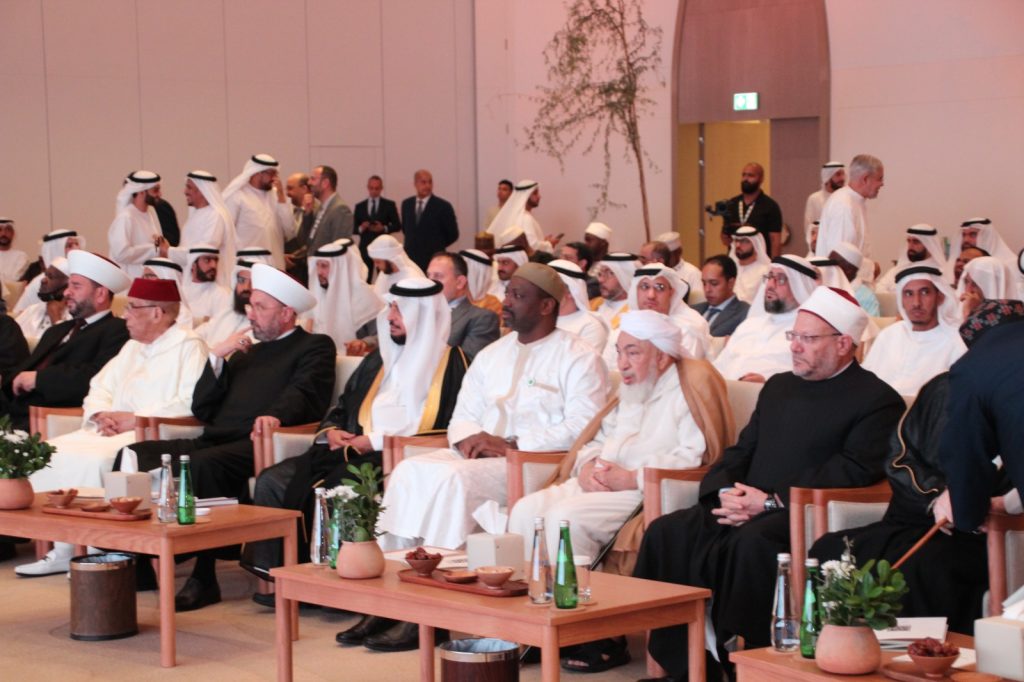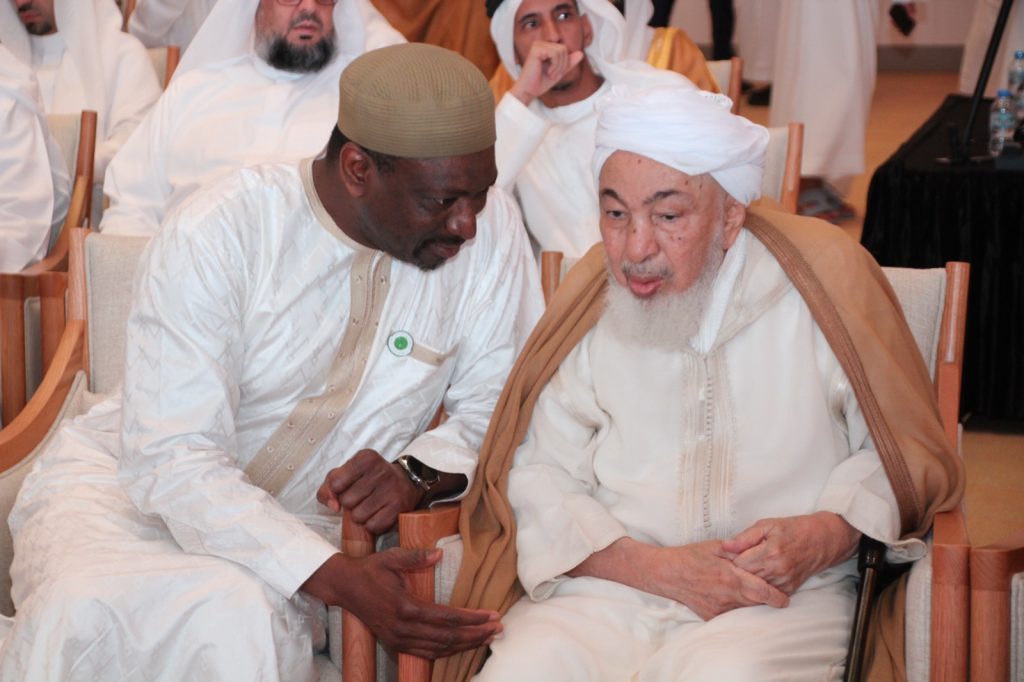
H.E. Prof. Koutoub Moustapha Sano, Secretary General of the International Islamic Fiqh Academy, participated in the second world conference entitled “Towards Sharia Understanding of Scientific Developments: Civilizational Methodology, Realistic Applications and the Ethics of Sustainability”, organized by the Fatwa Council of the United Arab Emirates on 23-24 Rabi’ al-Akhir 1445, corresponding to November 7-8, 2023, in Abu Dhabi.
His Excellency delivered a keynote address at the third session, entitled Sharia Fatwas on Medical Issues and their Understanding of Scientific Developments, and began his speech by expressing his sincere thanks and gratitude to the United Arab Emirates for organizing this important scientific conference at a time when our contemporary world is witnessing a qualitative leap and abundance. The quantitative aspect refers to the types of scientific developments that should inevitably be approached with guidance and orientation, based on the general principles of sharia, maqasid, balancing interests and harms, and the consequences of actions. His Excellency explained that “The International Islamic Fiqh Academy, as the greatest contemporary reference for collective ijtihad, has chosen a solid approach to dealing with scientific developments, based on the integration of jurists and experts in all available scientific fields, particularly in medicine, economics and sociology, on which the Academy relies to adopt Sharia resolutions on these vital issues. Medical sciences are based on clear perceptions and accurate information provided by specialists on the reality of scientific innovation, its origin, purpose and impact, as well as an explanation of its position on the scale of necessary, indispensable and sharia-improving interests. These perceptions submitted by the specialists are then presented to the Academy’s Council in the presence of its members and experts in order to clarify the appropriate Sharia ruling in the light of the members’ unfailing understanding of the new developments, and their very precise understanding of the impact of the appropriate Sharia ruling in this regard.
His Excellency spoke of the procedures followed by the Council when issuing resolutions and recommendations: “When issuing its resolutions and recommendations, the Academy’s Council is keen to adhere to objectivity and impartiality in presentation and discussion, and is open in its resolutions to recognized schools of Islamic law, and is not bound by any specific school of law. Whereas resolutions relating to these innovations cannot be attributed to the schools’ previous imams, as these are new issues in religion that were not known at their time.” He also explained that the Council often delayed issuing resolutions, justifying this by saying, “However, it is more appropriate to say that in many cases, the Academy has postponed issuing resolutions and recommendations concerning many new issues, when the desired and complete Shariah understanding of scientific developments is not available and evident, in order to avoid rushing to issue resolutions that will not be free from criticism and opposition, and in the hope of deepening studies and investigations into these developments. Accordingly, anyone consulting the Academy’s book of resolutions and recommendations will find a large number of issues and developments whose resolutions the Academy’s Council has deferred to later sessions”
In this respect, His Excellency underlined the impact of this approach on the acceptance of the Council’s resolutions and recommendations. He said: “This solid approach to scientific developments in general and medical issues in particular has enabled the Council’s resolutions and recommendations to be widely accepted by countries and institutions, and I believe that the recommendations of this conference will also contribute with a qualitative change in the explanation of these methodological steps which help to achieve a better understanding of scientific developments. They will also include realistic applications that will make dealing with scientific developments easy and clear. In addition, they will strengthen cooperation and integration between Shariah scholars and experts in various modern sciences.” His Excellency expressed the Academy’s aspiration to “make the most of this conference’s recommendations, and hopes that communication and coordination with the UAE Fatwa Council will continue on this important subject, in order to enable contemporary Muslims to learn the Sharia rulings on scientific developments with ease and comfort.”
His Excellency concluded his speech by praying to the Almighty to reward the UAE, on behalf of the Ummah, by granting the best reward to its rulers and people, and to bless H.E. Sheikh Abdullah bin Bayyah, to grant him health and well-being and to benefit us, the Ummah, and the whole world, with his knowledge and wisdom.
Read Also
Lastest











